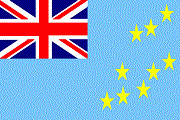Remarks delivered by H.E. Mr. Samuelu Laloniu, Pacific Islands Forum Chair and Permanent Representative of Tuvalu.
Greetings,
I have the honour to deliver this statement on behalf of the 14 Member States of the Pacific Islands Forum with presence here at the United Nations, namely; Australia, Federated States of Micronesia, Fiji, Kiribati, Nauru, New Zealand, Palau, Papua New Guinea, Republic of Marshall Islands, Samoa, Solomon Islands, Tonga, Vanuatu and my own country, Tuvalu.
On behalf of our group, we would like to express our gratitude to the co-sponsors for convening this important debate on climate and security. We would also like to take this opportunity to convey our condolences to and solidarity with those countries that have lost lives to the COVID-19 pandemic.
Climate and Security
Climate change is the single greatest threat to the livelihoods, security and wellbeing of the peoples of the Pacific. As PIF, we are collectively addressing this Council today because the links between climate and security for our region are indivisible and demonstrable.
When the effects of climate change intersect with a complex array of environmental, economic and social issues, it becomes a threat multiplier and can be a significant contributor to social and political instability, in addition to both low-level and more violent conflict.
The Pacific region faces negative climate impacts stemming from rising temperatures, sea level rise, ocean warming, increased frequency and intensity of extreme weather events such as storm surges and tropical cyclones, more variable rainfall patterns and prolonged droughts.
Pacific Island countries are particularly vulnerable to these effects with rural populations, high reliance on natural resources and ecosystem services, and high exposure to weather-related hazards and ocean changes.
Combined and increasing, such threats can overwhelm response and recovery efforts, leading to a breakdown in governance and security and stimulating unrest with wide-ranging consequences for well-being and livelihoods in the region.
The Pacific Response
Pacific leaders have affirmed the security challenges resulting from climate change in the Boe Declaration on Regional Security and the Kainaki II Declaration for Urgent Climate Change Action Now.
The security risks are stark but the remedy remains clear. The best way to reduce climate-related conflicts is to take substantial action on climate mitigation. States must do more to lower emissions to reduce future climate-related impacts through implementing National Determined Contributions and not just communicating them.
It is crucial that we maintain the global momentum created by the Paris Agreement to ensure it is anchored firmly to its objectives and principles and is effectively implemented. For the shared prosperity and security of our Pacific Island Forum countries, urgent action by the international community to limit global warming to 1.5°C is critical.
Anything less would signal to the world that we are not serious about climate change.
While climate mitigation remains the most effective way to reduce climate impacts, more investment is also needed to ensure vulnerable states can effectively adapt to the impacts of climate change which are already occurring. Building resilience, disaster risk reduction and adaptive capacity allows countries to better cope with climate-related events before they become security challenges.
With regard to the specific security implications of climate change, the UN response should be coordinated by a newly appointed Special Rapporteur on Climate and Security.
COVID-19 and the Pacific
As we turn towards the recovery from the COVID-19 pandemic, we have a once-in-a-century opportunity, and a responsibility, to prioritise investments in the transition to a low-emissions, climate-resilient economy. Every state should reflect on the UN SG’s climate-related principles to shape the recovery when developing their response.
The Security Council has a crucial role to play, both in highlighting the security dimensions of this multifaceted challenge and in encouraging efforts to address these risks before they lead to conflict. This, we believe, is in the spirit of the preventive security element espoused by UN Charter Article 1.1.
International and UN mechanisms, including the Council, must recognise climate change as a unique and consequential threat multiplier in all relevant work and activities. The Security Council can and should add its weight to calls to ensure that the global economic response is in line with these principles and the goals of the Paris Agreement.
The members of the Pacific Island Forum understand the fundamental importance of climate to international peace and security intimately. We encourage the Security Council and all member states to take action to address this global challenge in an integrated and innovative manner.
The litmus test for the humanitarian and development nexus is now. There can be no sustainable development without peace and human security and no peace without sustainable development.
We remain committed to undertaking this urgent and crucial work alongside you all.
I thank you.


